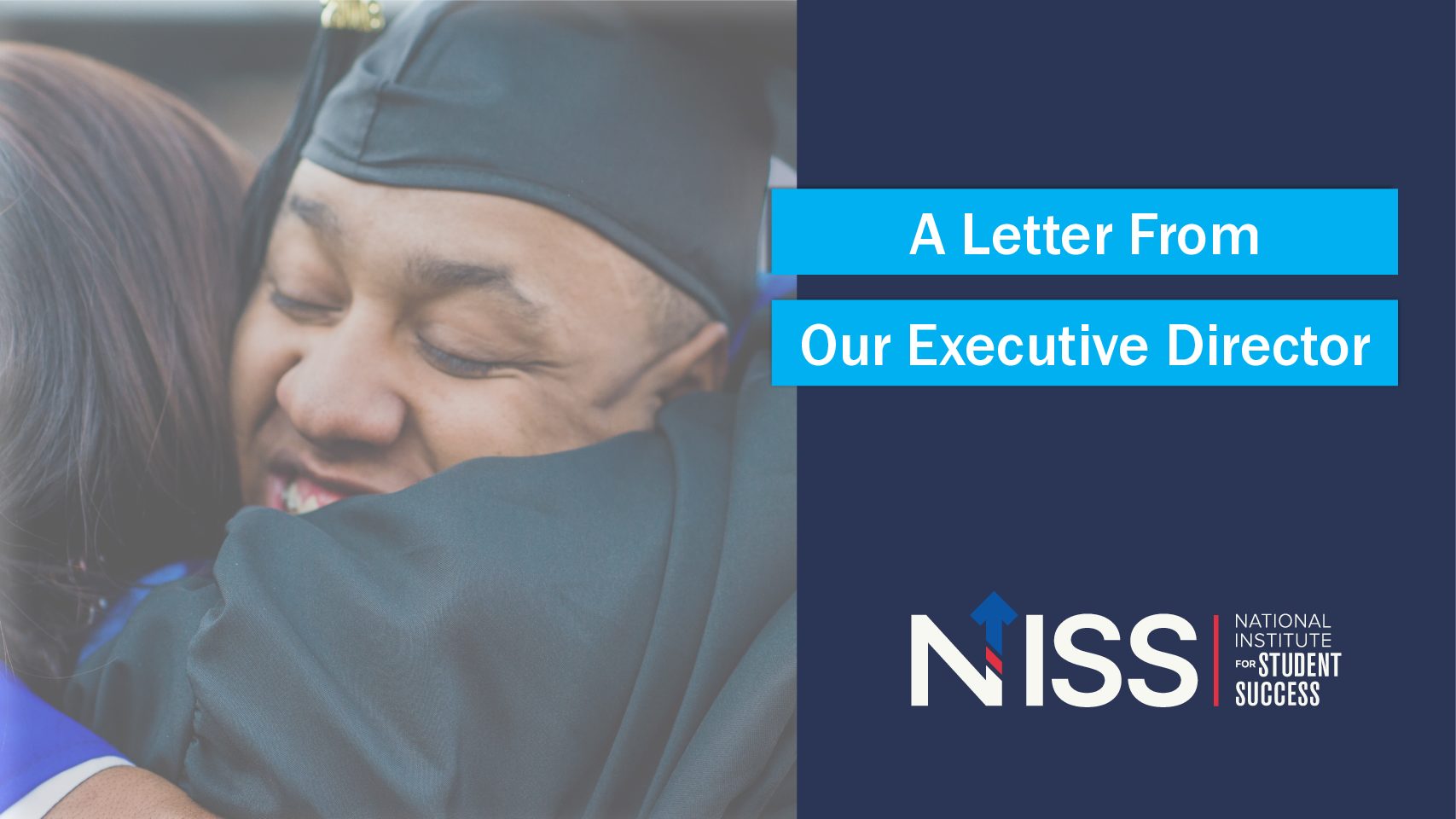
Response to the Supreme Court's Decisions to Overturn Affirmative Action and the Biden Administration's Student Loan Forgiveness Plan
In the aftermath of the Supreme Court’s recent decisions overturning, in rapid succession, affirmative action in college admissions and the Biden Administration’s plan to forgive federal student loans, I have been asked repeatedly about the impact of these rulings on the work of the NISS. My response is straightforward: these decisions do not make our work easier, but they do make it more critical.
By most assessments, the Court’s affirmative action decision will end up pushing more students of color from elite institutions to regional publics, MSIs, HBCUs, HSIs, and community colleges. This means that we need to find ways to improve student outcomes, especially for students from underserved backgrounds, at the institutions that will increasingly enroll these students. The NISS’s core mission is to work with colleges and universities—particularly those with below-average graduation rates and equity gaps based on race, ethnicity, and income—to implement evidence-based systems and data-driven approaches that have been shown to produce transformative improvements in student outcomes. These systemic changes benefit students from all backgrounds but have particularly strong impacts for minoritized, low-income, and first-generation students. At Georgia State University, for example, the approaches have not only led to a 70% improvement in the graduation rate overall but a 119% increase for Black students and a 159% increase for Hispanic students. After decades of lagging their White peers, Black and Hispanic students are graduating from Georgia State at or above the rate of the student body overall. Now, more than ever, we need to commit to making such outcomes the national norm rather than the exception.
Of course, this transformative work has always been critical to achieving more equitable post-secondary outcomes nationally since most students of color are enrolled at institutions like Georgia State rather than at elite schools such as Harvard and Princeton. According to Forbes, the entire Ivy League combined enrolled a total of 5,063 Black undergraduates this past year; Georgia State alone enrolled 18,000. Put simply, the Supreme Court’s overturning of affirmative action makes the NISS’s core mission to improve graduation rates and reduce equity gaps at under-resourced institutions more critical than ever.
The Court’s decision to block Biden’s loan forgiveness plan also serves to underline why the NISS’s work is so important. Across the U.S., the vast majority of individuals defaulting on their undergraduate student loans are individuals with some college and no degree. If we can help enrolled students achieve their goals of attaining meaningful post-secondary credentials, we substantively improve their earning potential. According to the Pew Research Center, bachelor’s recipients in the U.S. earn on average almost $1 million more over the course of their careers than individuals with only a high school diploma. Improving low post-secondary graduation rates is an essential part of addressing the student debt crisis.
Time to degree is another factor impacting the debt that students accumulate in pursuit of college degrees. The evidence-based approaches supported by the NISS have a direct impact on reducing time to degree and thus the debt load students carry after they graduate. At Georgia State, the suite of interventions has reduced average time to degree for our bachelor’s students by almost a full semester. The average debt load for Georgia State graduating seniors has decreased every year since 2016, dropping from $21,430 to $16,929 over the period. (This contrasts with the national average federal student loan debt per borrower that has been increasing and now sits at $37,338.) By using structured supports to help students find the right major in the first year of college and predictive analytics and proactive outreach to keep them on track through the efficient completion of their degrees, we can greatly reduce the burden of federal student loan debt on graduates—disproportionately benefitting graduates from minoritized groups, who currently carry the largest average debts.
The NISS believes that colleges and universities, with the right know-how and support, can transform themselves—and their student outcomes. Through implementing a set of proven, evidence-based student supports, we can greatly improve graduation rates and make the attainment of degrees far more equitable across all types of post-secondary institutions.
Rather than change the nature of the NISS’s work, the Supreme Court has just made it necessary that we undertake it with new urgency and resolve. Millions of students are depending on us.
Tim Renick
Executive Director, National Institute for Student Success
By Tim Renick, Executive Director, NISS · NISS Content Publisher





